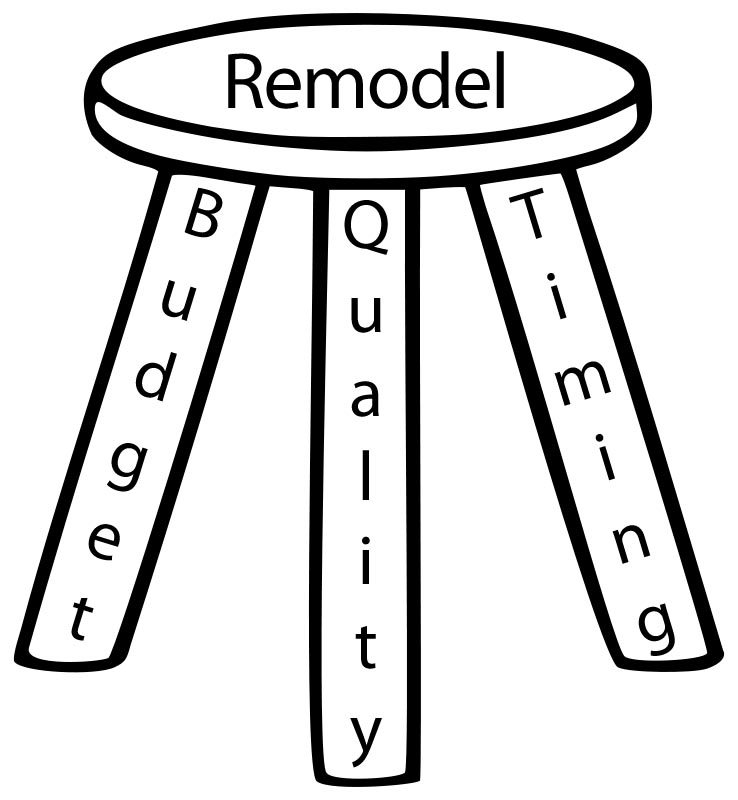It's not unusual for young couples to contact me for their remodel with only a few weeks to go before their baby is born. Expecting moms, and sometimes parents, get a little extra hormone boost that instinctively tells us to make room, tidy up, and prepare safety for the blessing that is about to be. It's a good thing! Unfortunately, it isn't always conducive to a smooth remodeling process. Typically homeowners who contact me want to have everything complete before baby is born, unfortunately this is almost always unrealistic. Sometimes they contact me and plan to live in their home during construction before and even after birth. This can be complicated for health reasons.
Here are some questions to ask yourself and be aware of in conversations with your interior designer and general contractor.
- When is your due date? Is it 3 or 30 weeks out?
- Will you be living in your home during construction, moving out temporarily, or going on vacation?
- How much work are you planning to do yourself?
- What is your main reason for remodeling now? Are the surface materials just ugly, or are things broken and you're concerned for safety?
Now see last week's article and consider how long a typical remodel takes, possible setbacks, and safety concerns before jumping head first into a kitchen or bathroom remodel with your growing family.
- How much time is realistic to do a remodel of this size?
- How much is budget a factor in your decision-making?
- Are you planning to live in your home during construction?
- What steps are you considering that may expose you and your unborn/new baby to lead and other toxins as your old rooms are taken apart and demolished?
- I mention this because many of us want the satisfaction of taking a sledge hammer to the walls, etc, to start the process and possibly save costs, but doing so in homes built before the 1970's exposes you and everyone around the area to lead and potentially asbestos too.
- Even if you're considering painting yourself to save a little money or just to feel more involved, be sure to select a zero VOC (volatile organic compounds) paint, not just one that is low VOC.
- Have you discussed what steps your contractor will take to protect you and the rest of your home during construction?
- Will they include plastic barriers/walls with zipper doors to contain much of the dust? Do you have realistic expectations as to fine dust that will escape and find its way throughout your home?
- How about noise? Are you prepared with sound-canceling earmuffs or planning to work outside of your home?
- Do you have pets? If so, what is your plan for them to be safe and well adjusted?
Does this mean that you shouldn't remodel as you're preparing for your new family member? I believe in having conscious decisions and full awareness to decide for yourself. Being prepared with realistic expectations will help when the time comes that you've dusted the coffee table for the 5th time in a day or someone's nap has been interrupted again. Remodeling is an adventure, I hope you enjoy yours.












